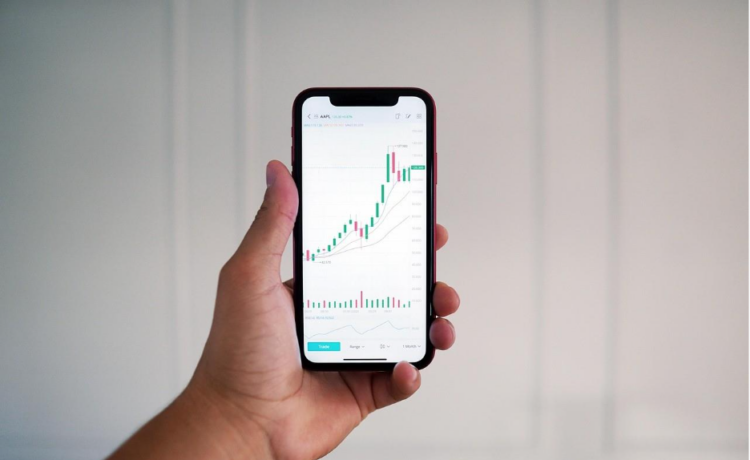- Mobile forex apps in Nigeria have evolved from simple rate-checkers to full-featured trading platforms offering advanced charting, AI tools, and secure local payment options.
- Traders benefit from features tailored to Nigerian conditions, including offline chart access, push alerts, and lightweight designs for mid-range smartphones.
- The integration of education, community interaction, and customisation within apps supports both beginner and experienced traders in making informed, flexible decisions on the go.
The forex market is no longer confined to trading floors or desktop platforms.
Over the past decade, mobile technology has transformed how traders in Nigeria and around the world access and participate in currency trading.
Today, mobile forex apps have reached a level of sophistication that blends real-time market data, advanced analytics, and user-friendly interfaces into a single powerful tool.
Many Nigerian traders now operate entirely from their phones, making use of platforms like the HFM App to monitor prices, execute trades, and manage accounts. This shift has changed not only where trading happens but also how traders think about speed, convenience, and flexibility.
From Basic Price Checkers to Comprehensive Trading Suites
The earliest mobile forex apps served a limited function. Traders could check live exchange rates and perhaps view a few basic charts, but most serious analysis and execution still happened on desktop platforms.
By contrast, modern apps provide everything from advanced charting and multi-timeframe analysis to economic calendars and integrated news feeds. Nigerian traders can access the same professional-grade tools on a phone that were once available only on high-end desktop platforms.
Meeting the Specific Needs of Nigerian Traders
Forex trading in Nigeria presents unique challenges and opportunities. Many traders operate in environments where they need flexibility to manage trades during work hours, while travelling, or in areas with inconsistent internet access.
Modern apps address these needs with features such as:
- Offline chart review for previously loaded data
- Push notifications for trade alerts and price levels
- Secure and fast local payment integrations for deposits and withdrawals
- Lightweight designs that work smoothly on mid-range smartphones common in Nigeria
Enhanced Risk Management on Mobile
In earlier years, risk management tools were limited or hard to use on mobile. Now, traders can set stop-loss and take-profit levels instantly when opening a trade. Many apps also include risk calculators that help determine position sizes based on account balance and risk percentage.
This is particularly useful for Nigerian traders who want to avoid overexposure while still taking advantage of high-probability setups. The ability to manage risk effectively on mobile reduces reliance on desktop platforms.
Integration of AI and Smart Features
One of the most significant developments in mobile forex trading is the integration of artificial intelligence. Some apps now provide AI-generated trade ideas, volatility forecasts, and even sentiment analysis drawn from global news and social media.
For Nigerian traders, these smart features can help bridge the gap between limited market research time and the need for timely decisions. AI does not replace trader judgment, but it offers data-driven suggestions that can speed up the decision-making process.
Customisation for Personal Trading Styles
Modern apps give traders the ability to customise almost every aspect of their experience. Chart layouts, colour themes, technical indicators, and even the arrangement of menu items can be adjusted.
A day trader in Lagos might choose to keep quick-access buttons for market orders and short-term charts on the main screen. Meanwhile, a swing trader in Abuja might set up alerts for weekly chart levels and news events affecting longer-term positions.
Education Built into the Platform
Nigerian traders, especially beginners, benefit from educational resources integrated into trading apps. Many platforms offer tutorials, webinars, and strategy guides accessible directly in the app.
This means a trader can learn a new technical pattern in the morning and practise identifying it on live charts that same day. By keeping education and execution in one place, apps support continuous learning alongside active trading.
Community and Social Features
The growth of social trading and community interaction has reached mobile platforms. Some apps allow traders to share charts, discuss market ideas, and even follow or copy other traders directly from their phones.
In Nigeria, where trading communities are active both online and offline, this adds a collaborative dimension to mobile trading. Traders can exchange strategies, compare results, and learn from each other without leaving the platform.
The Impact on Trading Habits
The evolution of mobile forex apps has changed trading habits in Nigeria. Many traders no longer wait until they are home or in an office to analyse markets. Instead, they check charts on lunch breaks, set alerts during commutes, and adjust positions in response to breaking news.
This constant connection to the market can be both an advantage and a risk. While it allows for faster reactions, it also increases the temptation to overtrade. Modern apps often include account usage statistics to help traders track their activity and maintain discipline.
Looking Ahead
Mobile forex apps are expected to continue integrating advanced technologies like machine learning, voice-command execution, and deeper automation. For Nigerian traders, the combination of global market access, localised payment options, and powerful mobile tools creates an environment where trading can fit seamlessly into daily life.
The journey from simple rate-checking apps to full trading ecosystems has been rapid. What remains constant is the need for traders to use these tools wisely, combining convenience with sound strategy and disciplined risk management.
Final Thoughts
The evolution of forex apps has brought Nigerian traders closer to the global market than ever before. Platforms now offer the speed, flexibility, and analytical power that modern trading demands. Whether you are a beginner exploring your first trades or an experienced trader managing complex positions, today’s mobile apps provide the tools to act with confidence and efficiency.
The technology will keep improving, but the real edge will always come from the trader’s ability to use these tools thoughtfully. In Nigeria’s vibrant and growing trading community, the next step in mobile trading evolution is already underway.









